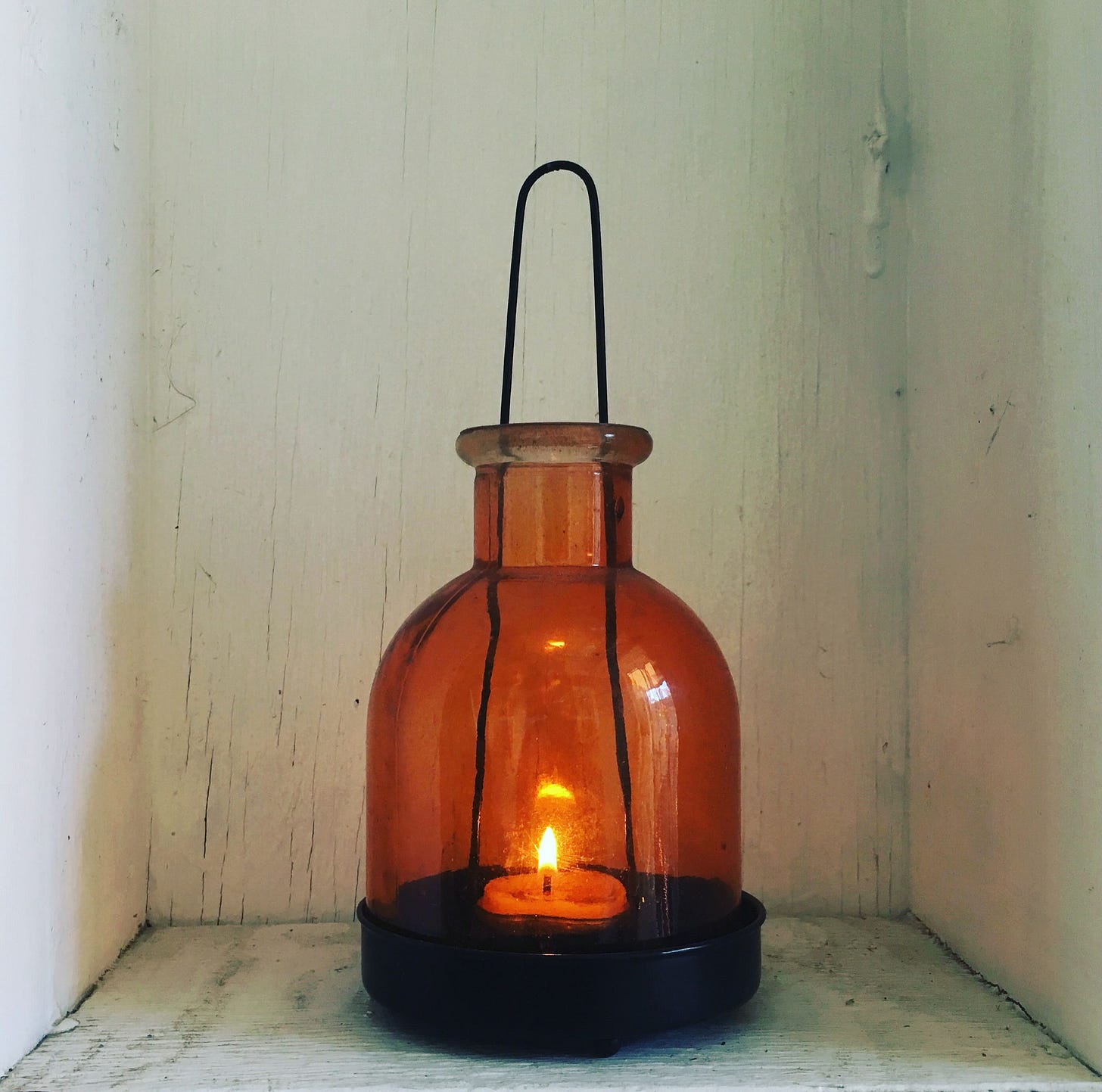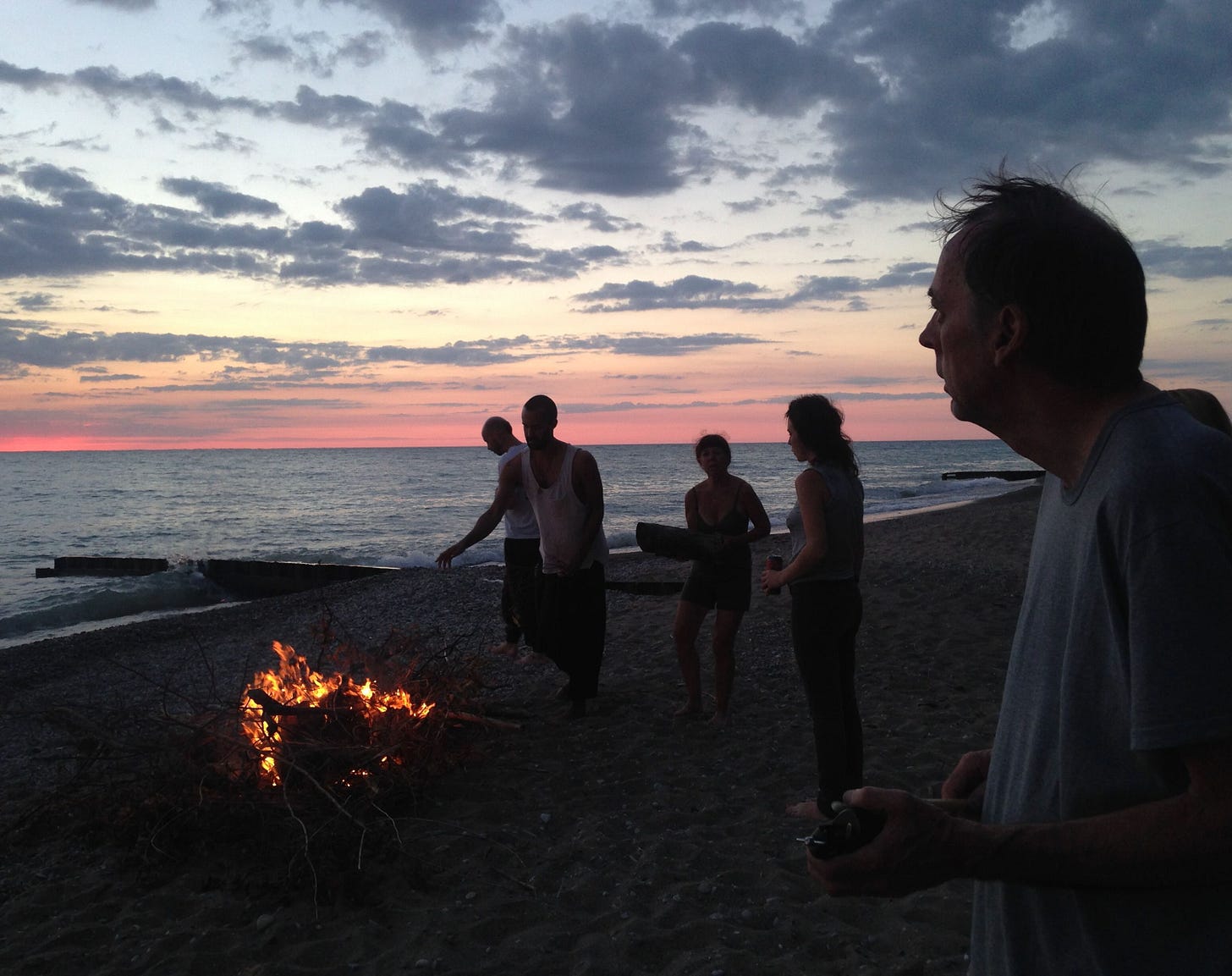“Politics were once separated by beliefs in the role of government; now party lines seem to cut through our very humanity.” Willow Defebaugh, in Atmos 2/14/25
Dearest Fellow Earthlings,
The last six weeks have been challenging for many reasons, some of which we collectively share and some are specific to my own life, including the welcome challenge of adopting an 8mo old puppy from a rescue organization (more on that in the next post!). In the midst of it all, it’s been difficult to focus on my own writing long enough to finish a piece I’ve been working on, but I’ll get there.
To say this time that we’re in is unsettling is an understatement. We’re experiencing a dictatorial campaign of shock and awe in the US that is reverberating out into the world, and many are reckoning with the facts: all that the current government majority said they would do, they are attempting to carry out, and much more. Like many, I’m swirling with anger, fear and concern for all life on Earth, feelings that come to a point in outrage.
Outrage is often a precursor for action, and in the current situation, with such a constant barrage of harmful policies and threats being enacted, figuring out what action to take can feel overwhelming, like a hyper-charged game of Whac-a-Mole. In a poly-crisis like this, we must act.
Some kinds of actions are unquestionable and immediate, like rising to the aid of someone you know who is being threatened. When the promised ICE raids began on “Day 1”, members of my Episcopal Church’s Immigration Ministry provided bilingual “Red Cards” to immigrant members of the congregation that include a list of rights to know and assert in the event of an ICE encounter. One compassionate US-born congregant has been calling and checking on them regularly, as they are now absent from church on Sundays.1
Other kinds of actions require care and discernment as we prioritize based on our own energy, skills and time. If we allow ourselves to sink into overwhelm by the magnitude of issues, we render ourselves helpless and unhelpful. Remember you are not alone and not all of the work is yours to do. I have to repeat this to myself often. You cannot effectively address everything directly, but choose what you can do, and support those who are doing things you cannot do. This is one of the beauties of community.
In her excellent book, Standing at the Edge, Roshi Joan Halifax warns us of burnout and reminds us:
“Edges are places where opposites meet. Where fear meets courage and suffering meets freedom. Where solid ground ends in a cliff face, where we can gain a view that takes in so much more of our world. And where we need to maintain great awareness, lest we trip and fall.”2
Cultivating that awareness feels especially important right now, as does finding a path to walk, with actions you can take while also taking care of your own being and your loved ones in a time of threat.
Sharing strategies with each other is incredibly important for keeping our feet on the ground. For me, finding others to work with is really helpful—it keeps me from curling up in a ball in the dark. I’ve reached out to my local Indivisible group and will attend a meeting this week. I also subscribed to the 5 Calls app, to get focus and direction. If I can’t do all the things, I can choose a few actions to take each week. (Please share whatever you have come up with in the comments section below!)
In the midst of polarization, we must care for one another. Share meals, tears, music, bread, art, rage, hugs, dog walks, sunsets, gazing at the night sky . . . call your friends and talk with neighbors. I live on a street of 24 houses with no outlet other than the main road we each turn in from to get home. Many of us have lived here for decades and know each other as neighbors who show up to help and are happy to lend tools and labor, or share a quart of homemade soup or garden vegetables when there is plenty. We’re always happy to chat with each other by the mailbox or when walking the dog. This is true regardless of political affiliation.
There are vast differences in ideology that dwell in the homes on our street. Some of us don’t shrink from indicating our values in conversations or on lawn signs, but we tend to tread softly regarding politics. I deeply disagree with the politics of some of my neighbors, but don’t positive interactions open people to possibilities much more than negative ones? I think about our shared humanity and remember that understanding only happens through connection.
I’ve been thinking again about a program I have heard of called “The People’s Supper.”3 Their format brings polarized communities together in groups around supper tables to find and build upon common ground through conversational prompts that reveal the humanity of each person. They assert:
Healing is a collective enterprise. Strengthening our civic fabric requires talking to each other — investing intentionally in the hard conversations that reveal us as complex and caring human beings.
I don’t think this is the cure for what ails the whole country in this supercharged situation, but it could be a good process for a community to engage in for the building of relationship, understanding and trust. Because misinformation and polarization are such an obstacle to connection, one feature ought to be a diversity of political ideology. The folks at the People’s Supper suggest, “at the core, trust is the lubricant that propels human connection.” The best way to build trust is to get know one another and engage directly within a structure that supports our best selves to show up.
My husband and I have discussed this kind of program as something we might do on our own street, but in such a small, neighborly community, it may be that the best action would be to make a huge pot of soup for all, and distribute invitations in mailboxes to bring a dish to share. Some will come and some will not. The only agenda would be getting to know one another better and being humans together. We need to be concrete presences to each other, not abstractions.
In her recent editorial, in Atmos: Climate and Culture, Willow Defebaugh centered on the value of our shared humanity:
We are all human, living and dying by every act of cruelty and kindness, all traveling to the same destination. And while the path we walk is not entirely up to us, how we walk it is—the traces we leave behind, who walks beside us, and how we treat them. If I can reach the end of that journey, the place where my river meets the sea, and know that I did so holding onto my humanity, then I will greet the water’s edge knowing that it was a life well-lived.4
May we resist the actions that seek to reduce the humanity in others.
May we hold on to and exercise the heart of our own humanity by actively protecting and advocating for the humanity of those who are being targeted and stripped of rights in the days to come.
Please, bring your own branch to the fire circle of mutual tending and add it to the blaze.
Thank you for reading this installment of Coming to Ground. If you like what you read or heard here, please consider sharing it with others directly or by “restacking” this piece on Substack to give it a longer life.
I truly feel that writing and reading are participatory arts, though each are quietly rendered in solitude. It is a gift to be able connect directly, however briefly, with others here on Substack. I would love to read and engage with your comments.
Lastly, my work has no paywalls because I want these words to be free to all. Hitting the “Subscribe” button below will not cost you anything. However, if you can easily afford $5 per month or $50 for a year’s worth of my work, you can make that choice and I will be deeply grateful for it. This is a labor of love that requires significant amounts of time, energy and attention.
Churches, along with schools and health care establishments, have been removed from the list of places previously deemed exempt from immigration raids. Our immigrant members have obtained legal status to be in the US, but the President has also moved to cancel that status.
Joan Halifax, Standing at the Edge: Finding Freedom Where Fear and Courage Meet, NY: Flatiron Books, 2018, p2.
For more about the People’s Supper, you can listen to an interview with the founders, Jennifer Bailey and Lennon Flowers: An Invitation to a Brave Space with Krista Tippet for On Being.
Willow Defebaugh is the Co-Founder/Editor-in-Chief of the online and print periodical, Atmos, a “nonprofit media organization focused on the cross-pollination of climate and culture, delivering award-winning journalism and creative storytelling through a biannual print magazine, daily digital features, original newsletters, and more.
Our mission is to re-enchant people with nature and our shared humanity. We inspire cultural transformation and illuminate solutions to heal and protect the planet–now, and for generations to come.” Because of the atmosphere of hatred surrounding Trans and Queer people right now, I want to lift up Willow Defebaugh as a gifted writer, who just happens to be an openly trans woman.





Thank you for the strong gentleness of your response to events around you. This seems a kind of genuine resilience, and I hope you find encouragement in its exercise and by the success of your local encounters.
Love the idea of The Peoples supper. Mutual hospitality afforded by gathering around a table is a radical act of community in these divisive and painful days.